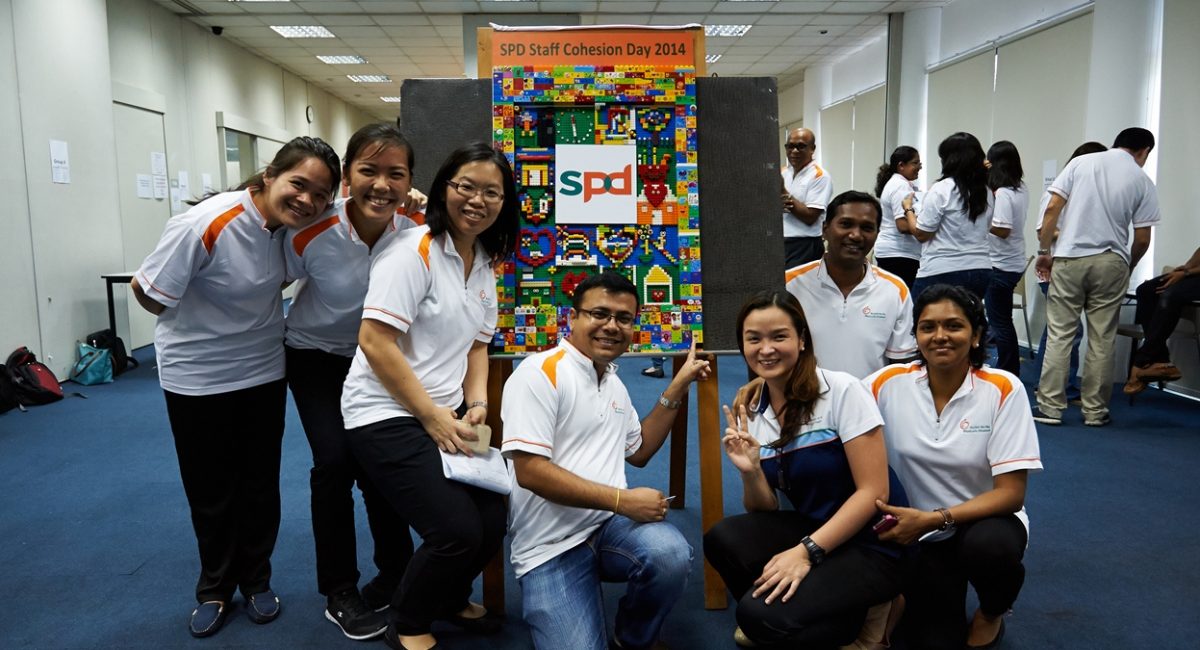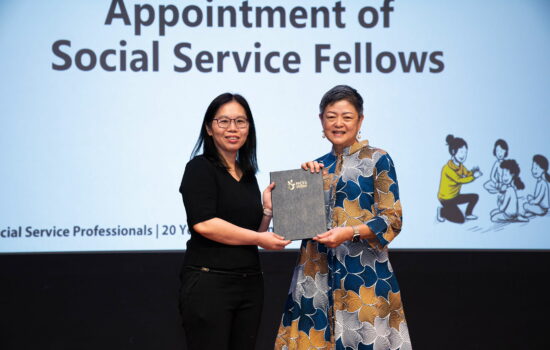In an open letter to Minister of Social and Family Development Mr Chan Chun Sing, SPD executive director Mr Abhimanyau Pal, supported the Minister’s call for the social service sector to be included in the country’s infrastructure planning.
Dear Minister,
We are truly glad that you are at the forefront of the social service sector and supporting its inclusion in infrastructure planning. The morale of SPD, and I believe the whole social service sector, is greatly increased when you compared the importance of our sector to that of national defence and economic success (Ref: CNA article http://www.channelnewsasia.com/news/singapore/social-services-should-be/1277010.html).
Leadership and Governance
In the early days when there was little mainstream funding, the social sector is driven by ardent leaders passionate about making positive differences to people’s lives. The vision and determination of these leaders helped them overcome many barriers to engage the community, private organisations and voluntary welfare organisations (VWOs) to build a thriving sector.
The social service sector has since progressed, developing into a diverse sector with organisations of varying capacities and different specialties. The governance of the sector is therefore important, to ensure integrity, service quality and to live up to public trust and confidence. The two methods of governing, the centralised approach and the ‘free-hand’ approach, have their pros and cons.
Centralised governing would give the Government an overall view of the whole sector, thereby enabling consolidation, specialisation and tiering of the various services offered by different VWOs. With centralised governance, there would be greater economies of scale, efficiency and effectiveness as the different organisations streamline their services and collaborate to share resources and expertise.
On the other hand, the creation of an open and conducive environment in a ‘free-hand’ approach encourages ideas and innovation and enables the sector to take its vision to higher levels. The recent schemes that the Ministry of Social and Family Development (MSF) and the National Council of Social Service (NCSS) have shared, such as centralised recruitment for VWO leaders and Volunteer Resource Optimisation (VRO) programmes, are promising. These measures are timely and help give greater focus to the emerging sector. However, there are concerns among some VWOs that such schemes will erode their individual organisation’s distinctiveness and culture, given that these professionals are not groomed from within their organisations and may not share the same ideals and principles.
We look forward to the Government’s direction on the best approach and would give our support to move the sector forward.
Challenges of Corporate Funding
VWOs strive to build financial sustainability through the ‘3P’ partnership involving the people, public and private sectors. One major challenge is to engage the corporate donors on a longer term relationship, as the continuity of corporate funding is one of the key determinants in supporting the operations of long term programmes and the viability of introducing new initiatives. In addition, donors often prefer that all their donations be channelled to help the beneficiaries directly, rather than organisational infrastructure and administrative expenses incurred in order to run programmes for beneficiaries. VWOs would appreciate having the flexibility to use donations to cover some of the fixed and variable costs of running these programmes.
SPD is pleased to have been able to work with corporate partners like Asia Pacific Breweries, Microsoft Singapore and NatSteel Holdings, who have been supporting SPD and its programmes for several years.
There is more potential to engage corporates and individuals in giving. As the Individual Giving Survey by the National Volunteer and Philanthropy Centre (NVPC) shows, individual giving has steadily increased from $0.96 billion in 2008 to $1.07 billion in 2010 and to $1.10 billion in 2012.
We would like to encourage more corporations to come forward. When more corporations come forward, it would encourage other corporates to do so as well. We hope that the Ministry could create more opportunities to bring corporate partners and VWOs together and to raise greater public awareness, especially on the need to build organisational infrastructure so that people will understand the sector and its needs better.
Impact-Based Programmes
The social service is facing demand from donors and the public to show results from the funding that they receive. Meeting stipulated key performance indicators (KPIs) and keeping a low overhead ratio have moved up in priorities.
However, the sector should not only be focused on ‘numbers chasing’. While tangible measurements are important in keeping programmes in progress and on track, it is also crucial to examine the positive impact of the programmes in the long run. Ultimately, the social service sector is a ‘people’s sector’. The emphasis should go beyond the ‘clinical’ approach of whether a specific number of clients have fulfilled the required number of hours of therapy, to taking care of their overall wellbeing, helping them to participate socially and to integrate into society.
Technology
While we applaud the Government’s initiative in setting up various organisations and supporting agencies, it also makes it confusing especially for VWOs that offer a range of services that are supported by different agencies. Some clients are also confused with the social service navigation system; where and who to get help from or what kind of help is available.
Technology plays a vital role in data management. The development of the Social Service Net (SSNet) national case management system and the setting up of social service offices are steps towards greater sharing of data and more co-ordination among partners to facilitate a more effective service delivery. Through the SSNet, we hope that the success of the regional health services framework could be replicated in the social service sector and allow people to navigate through the social system seamlessly.
Since many of the services required are often inter-linked and cut across different agencies, we also hope to see greater collaboration between various Ministries so as to enable all-rounded assistance for those who need help.
Retaining Talents
To develop and constantly improve the sector, we need to attract and retain talents in the sector. Over the years following independence, much emphasis on economic growth had necessitated that sectors driving economic development attracted the best talents. Hence, the non-profit sector may not be the first career choice for most people. Over time, the talent gap has grown and there is doubt in the social service sector’s capability in providing its staff with adequate remuneration, the right training and career progression. The public must recognise that while there are people passionate enough to join the sector, they face practical bread-and-butter issues like any employee in the workforce. Offering remuneration that is compatible with one’s experience and expertise, and comparable to those similarly skilled in other sectors, can help draw talents to join the social service sector.
Supporting Your Leadership
Though there are inherent challenges in the sector, we believe that they could be progressively overcome with the various measures implemented by the Government and greater collaboration within the sector. Under your strong leadership, we look forward to working with you and the MSF in building the social service sector as a key instrument in nation building. We also hope that the current Senior Management Team of MSF will stay with the Ministry for many more years so that we can work together to bring the sector to its next level.
Yours sincerely,
Abhimanyau Pal
Executive Director
SPD





